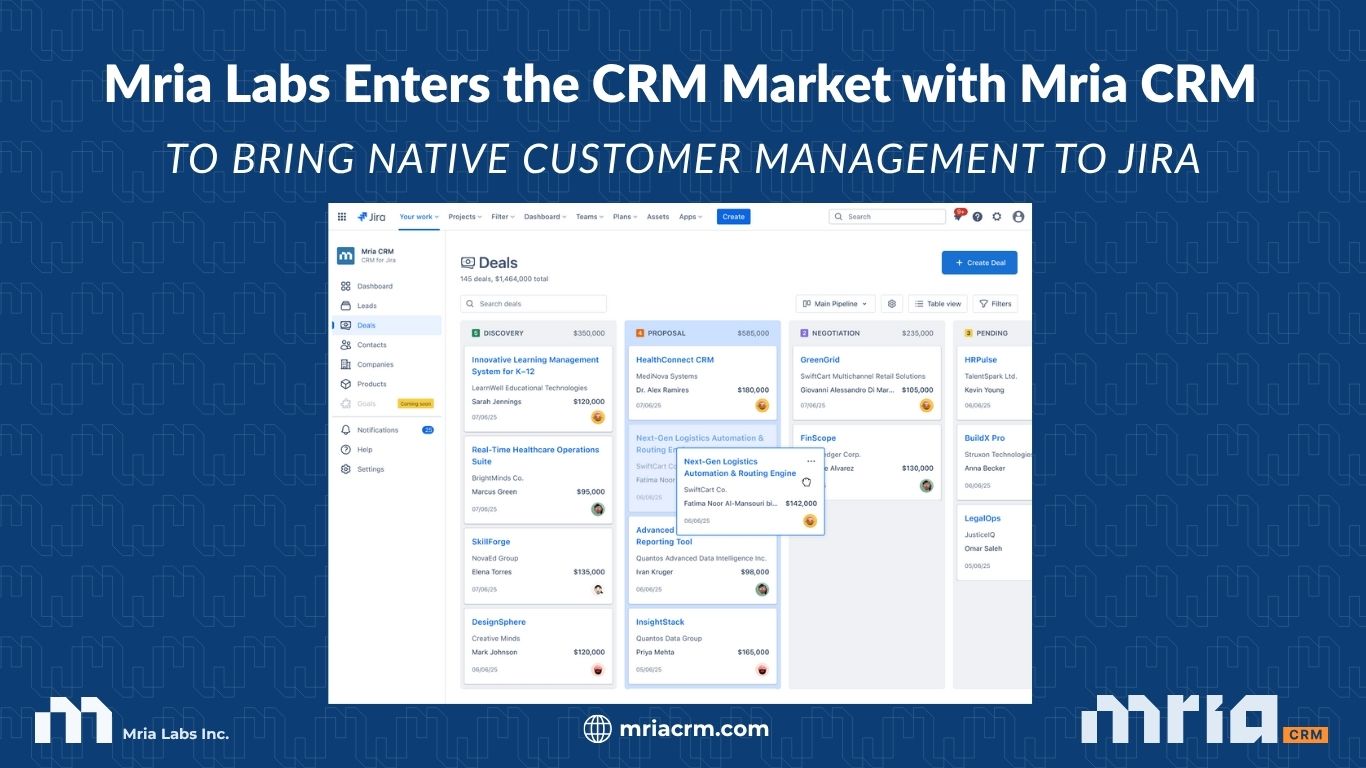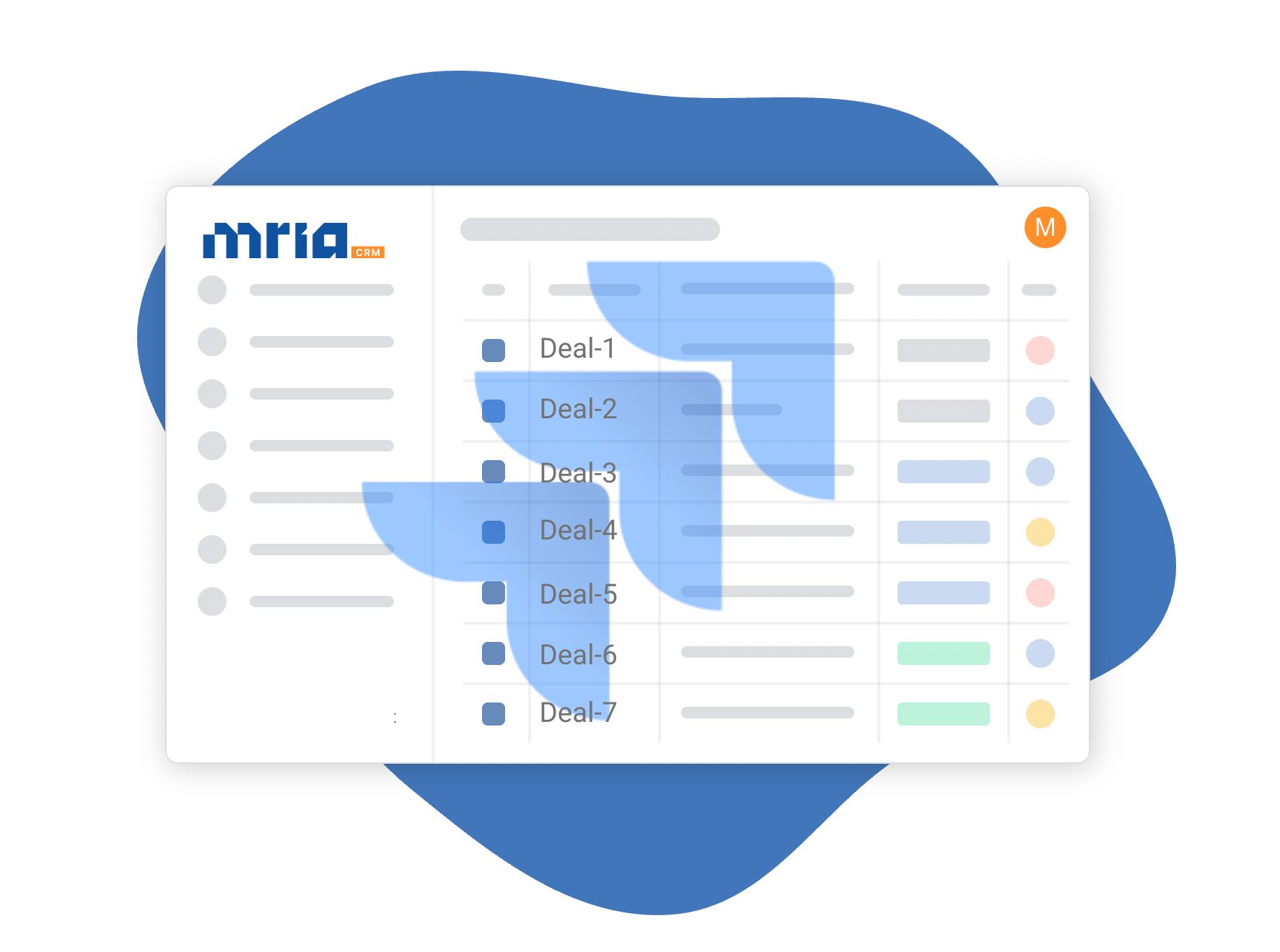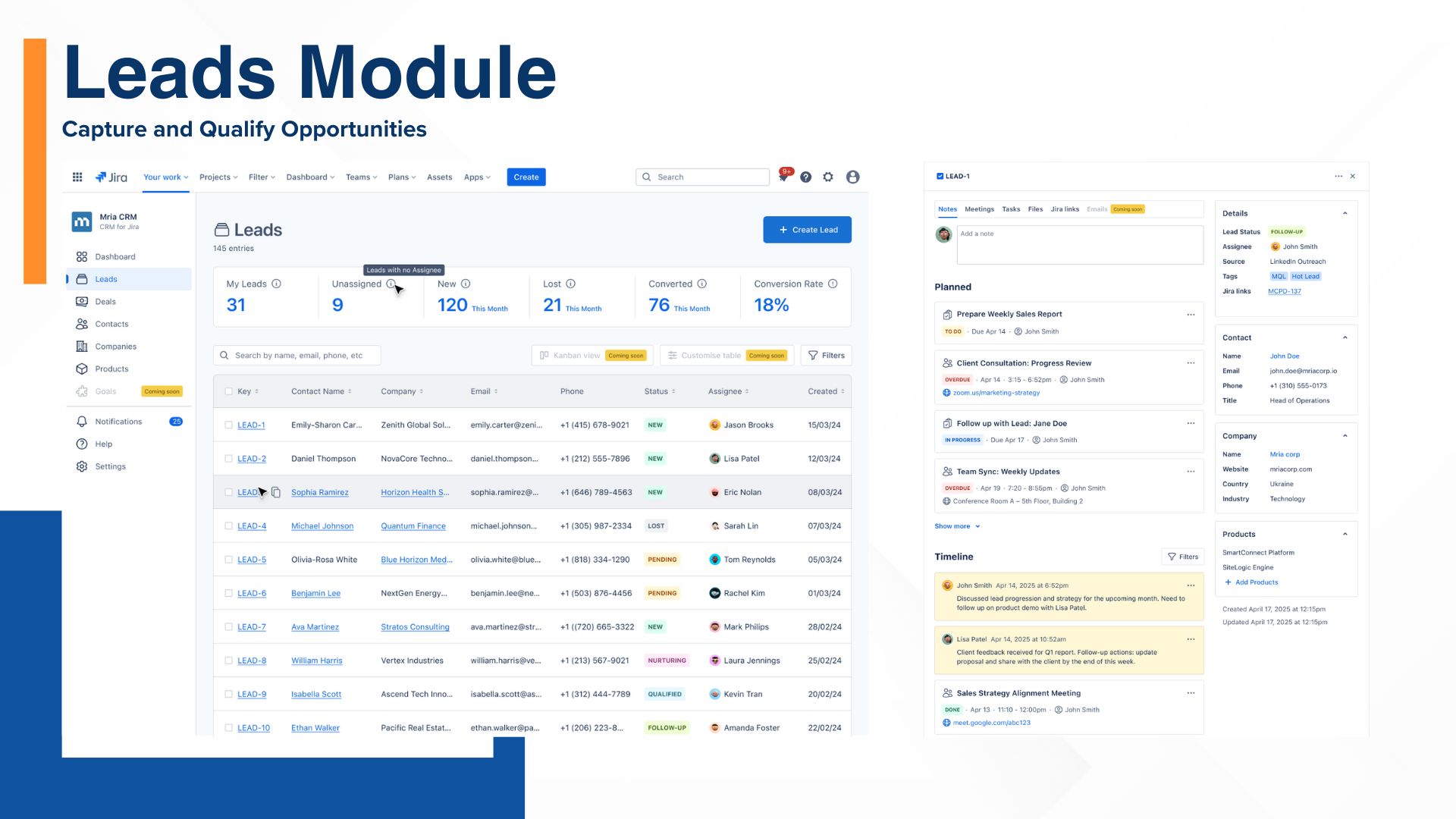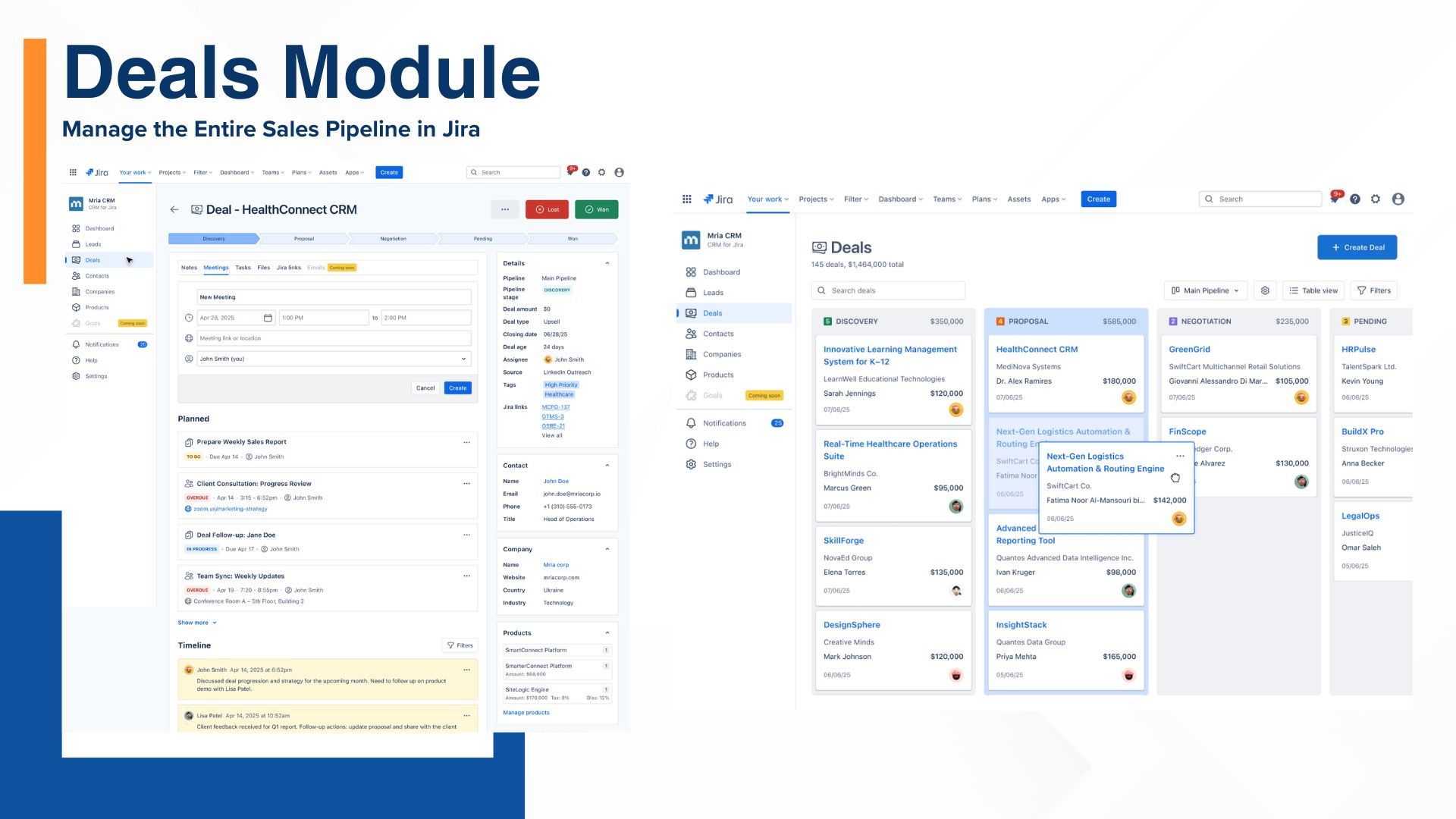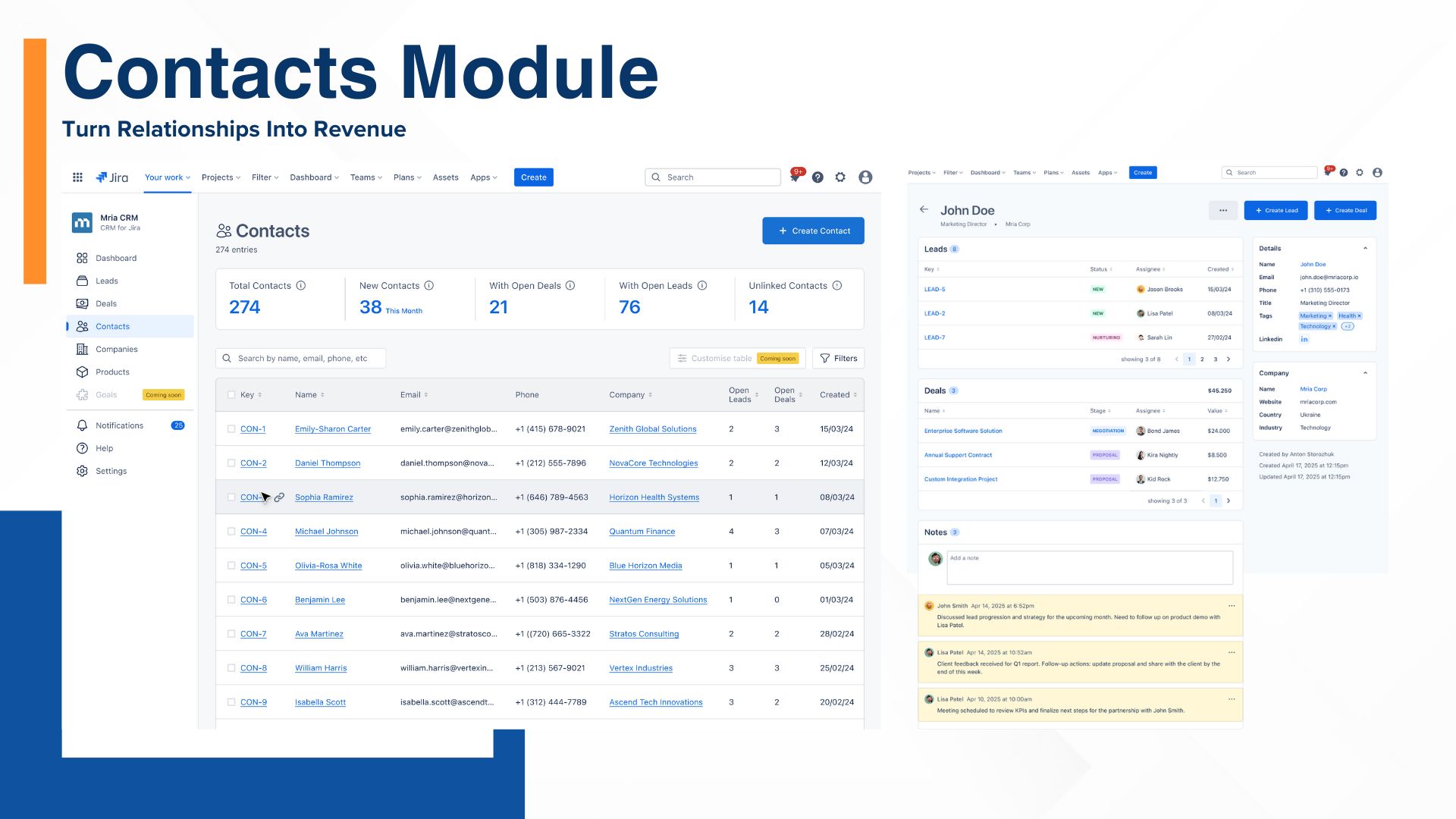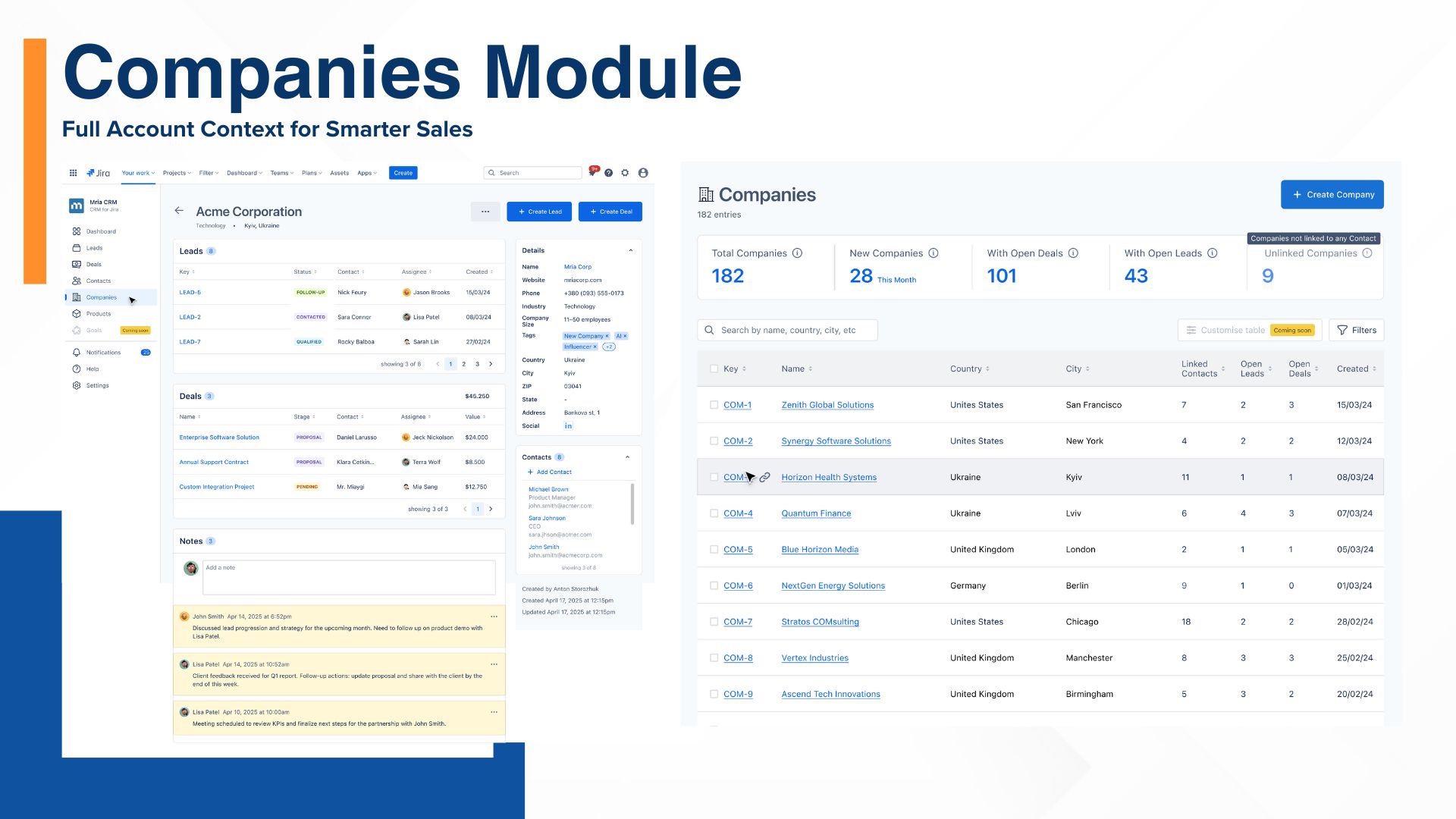Mria Labs, founded by experienced Atlassian Marketplace professionals, has officially entered the CRM market with the announcement of Mria CRM — the first customer relationship management solution built natively for Jira. Designed to close a long-standing gap for Jira users, Mria CRM brings customer management directly into the platform where teams already manage product, delivery and support. The company has released a visual preview of the core modules and confirmed that the product is planned for release in fall 2025.
A Long-Standing Gap in Jira
For years, Jira has been the go-to platform for teams managing projects, product development and support operations. However, it has lacked a true CRM system that allows sales, product and delivery teams to work in one unified space. Teams often attempt to customize Jira for lead and deal tracking or rely on standalone CRM tools that break the connection with day-to-day project work.
Mria Labs, with deep expertise in the Atlassian ecosystem, aims to close this gap. The company is building a native CRM solution that works where teams already work, with no need for syncs, external integrations or complex workarounds.
From Experience to Solution
Mria CRM is the result of years of working inside the Atlassian ecosystem and observing how teams push Jira beyond its original scope. While Jira is central to how many organizations manage delivery, support and internal collaboration, it has never offered a native way to manage customers. The need for a CRM that works directly in Jira has surfaced repeatedly, not just as a feature request, but as a structural gap that affects how teams sell, deliver and retain business. Mria CRM is being developed to close that gap with a fully native solution designed specifically for cross-functional teams operating in Jira every day.
“We’ve been part of the Atlassian ecosystem for years. We saw teams trying to use Jira as a CRM, and we did the same. We customized it, extended it, hit the same limits and ended up switching to a standalone system that broke the connection between teams. That’s what we’re fixing. With Mria CRM, we’re building what should have existed all along: one system where product, sales, and engineering work together as one team, inside Jira, driving revenue and customer success,” said Anton Storozhuk, CEO and founder of Mria Labs.
Mria CRM: A CRM That Is Jira
Mria CRM is being developed as a Jira-native system to eliminate silos and sync issues between departments. It enables users to manage leads, deals, contacts and company relationships directly inside Jira, alongside support tickets and delivery tasks. The interface is designed to follow Jira’s native experience, reducing the need for training or platform switching.
The product is being developed on Atlassian Forge, ensuring deep native integration, consistent performance and adherence to Atlassian’s latest architecture standards.
The first visual preview showcases four core modules:
- Leads – to capture and qualify incoming opportunities
- Deals – to manage sales pipelines and progress
- Contacts – to track individual stakeholders and relationships
- Companies – to understand the full picture across accounts
See the first Mria CRM preview: Visual Overview of Mria CRM Core Modules
Why a CRM in Jira?
Mria CRM’s positioning is clear: one account, one system, one team. Instead of switching between tools and managing scattered data, teams can keep all customer and project information inside Jira. This reduces complexity, improves collaboration and allows B2B organizations to close deals faster and retain customers without losing context between departments.
Learn more in 10 Reasons You Need a CRM Inside Jira.
“Sales, product and engineering should not operate in silos. Our goal with Mria CRM is to create a single environment where customer success is not just a handover between teams but a shared effort, supported by one tool,” Storozhuk added.
The Industry Context for Mria CRM
In recent years, major work management platforms like ServiceNow and monday.com have entered the CRM space. Though not traditional CRM vendors, they recognized the growing need to unify customer data with operational workflows. These moves reflect a broader shift in the market: CRM is no longer seen as a standalone tool but as an essential layer within the systems teams already use to work and collaborate.
Team collaboration platforms such as Microsoft Teams and Slack are also deepening their CRM integrations, signaling rising demand for cross-functional alignment. As customer relationships span sales, support, delivery and finance, the most effective CRM tools are being built directly into platforms where that work already happens.
Mria CRM brings customer relationship management into Jira, the platform of choice for managing product delivery, support and core operations. Atlassian serves over 300,000 customers in more than 200 countries, and more than 40% of Fortune 500 companies rely on Jira Service Management as part of their IT and service delivery stack.
While others are extending into CRM to close gaps between service and customer workflows, Jira already stands as an operational cornerstone for teams worldwide. Mria CRM completes that platform by embedding CRM directly in Jira. It enables product, sales and engineering teams to collaborate in one system, with no added tools and no loss of context.
Mria CRM Launch Plans
Mria CRM is currently in development, with the release confirmed for fall 2025. Mria Labs continues to share product updates through its website and blog, providing early insight into the progress and direction of the solution. A subscription for Mria CRM launch updates is now available, and the team is actively engaging with early subscribers to share planned capabilities and gather input ahead of the release.
To learn more about why Mria Labs is building this solution, visit Why We’re Building Mria CRM.
About Mria Labs
Mria Labs is the team behind Mria CRM, the first truly Jira-native CRM designed to connect sales, product and delivery teams in one system. Founded in 2025 by Anton Storozhuk, founder of Alpha Serve (acquired by Tempo Software in 2024), the company brings together senior professionals with proven experience in building, scaling and marketing Atlassian Marketplace apps.
The team is united by a clear goal: to build a CRM that works as a natural part of Jira. Every decision, from product architecture to go-to-market strategy, is shaped by deep experience with Atlassian products and a strong focus on the real needs of Jira teams. More about the company: mriacrm.com/about-us
Follow Mria Labs on LinkedIn and visit mriacrm.com to learn more about the product and subscribe for Mria CRM launch updates.
Media Contact
Anton Storozhuk
hello@mriacorp.com
